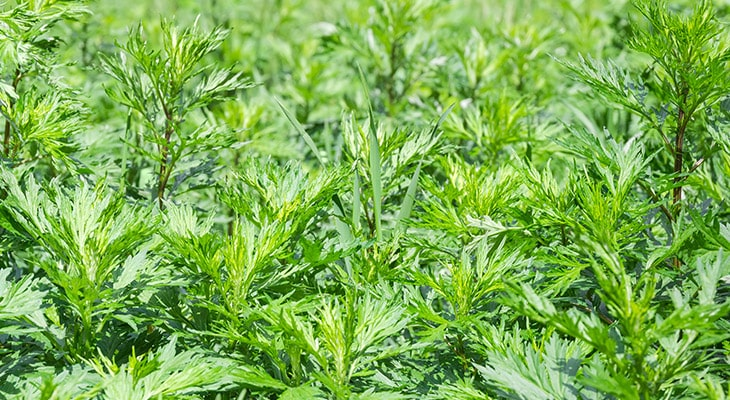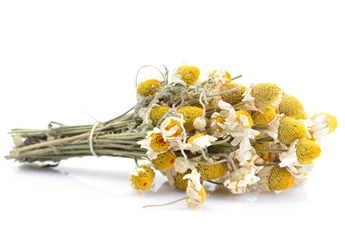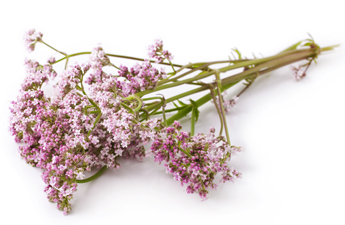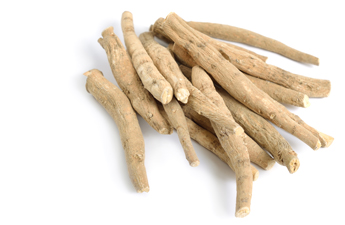Mugwort a favourite herb amongst Happy Herb Co customers as it has a popular reputation for enhancing lucid dreams.
We are dedicating a whole month to chatting all things Mugwort here at Happy Herb Co to celebrate some premium Australian Artemisia spp.

By Tamara Welsh, Happy Herbalist
Mugwort herb is a favourite amongst Happy Herb Co customers as it has a popular reputation for enhancing lucid dreams. We are dedicating a whole month to chatting all things Mugwort here at Happy Herb Co to celebrate some premium Australian Artemisia spp.
As an herbalist, I love to gather information about herbs from many different sources as well as my own personal and clinical experiences. I find it fascinating to understand how different herbalists from the past and present are using the same herb. I also love learning the interesting and sometimes quirky facts recorded in herbals of the past. Today, I have turned to my herbal library to pull together some information about the wonderful herb that is Mugwort.
A Brief History on Mugwort (artemisia vulgaris).
So to begin….what’s with the name? Mugwort. Mrs M Grieve, one of Western Herbal Medicines’ pioneering women wrote A Modern Herbal, first published in 1931, shares these insights into where Mugwort got its common name. “Mugwort(Artemisia vulgaris) is said to have derived its name from having being used to flavour drinks with the Mugwort leaves… It has also been suggested that the name, Mugwort, may be derived not from ‘mug’, the drinking vessel, but from moughte (a moth or maggot), because…the Mugwort plant has been regarded, in common with Wormwood, as useful in keeping off the attacks of moths.” (1) The Latin name for Mugwort, Artemisia vulgaris refers to Artemis, the goodness of young women and childbirth. Australian herbalist, Ruth Trickey in Women, Hormones and the Menstrual Cycle explains that “Herbs from the Artemisia family can be used during and after childbirth, to regulate and strengthen contractions and aid with the expulsion of the placenta”. (2).

A Close Relative to the Mugwort Plant
As Mrs Grieve mentions above, the Mugwort plant is closely allied to the common Wormwood, however Mugort and Wormwood can be differentiated by their appearance. The Mugwort plant leaves are white on the undersurface only. The highly regarded British herbalist, Simon Mills describes Mugwort as “An erect herb up to a metre in height with tough, grooved stems and many deeply pinnatifid leaves with five to seven lobes, dark-green above but silvery and hairy beneath” (3).
Mugwort and the Moxa
Interestingly, these silver hairs on the underside of the Mugwort leaf are used to create moxa. In his herbal, Nicolas Culpeper, an astrologer-physician of the early 17th Century, explains “The moxa, so famous in the eastern countries for curing the gout by burning the part affected, is the down which grows upon the underside of this herb.”(4) Similarly, the Native Americans burned Mugwort as a smudge to purify the spiritual and physical environment (5).
What Mugwort is used For?
In modern Western Herbal Medicine, Mugwort is often used to aid digestion, stimulate menstruation and induce relaxation. As a digestive aid, English medical herbalist David Hoffman describes “Mugwort can be used wherever a digestive stimulant is called for. For this it is best used in the Mugwort tea form. Mugwort will aid the digestion through the bitter stimulation of the juices whilst also providing a carminative essential oil.” (6). Mugworts bitter principles are also responsible for its use as a stimulant and antiseptic in the treatment of worm infestations, like its cousin, the aptly named Wormwood.

Mugwort: A Herbal Medicine
As hinted in Mugwort’s Latin name (Artemisia vulgaris), its other major use in herbal medicine is in gynaecology. In the past, Mugwort was well known as an abortifacient (7). This is due to its emmenagogue action which gives Mugwort an ability to stimulate the menstrual cycle. In modern herbalism, Mugwort may be used when the period is absent or scanty. Hence this is why Mugwort is not recommended in pregnancy.
Relax with Mugort
Lastly, Mugwort is also known to relax the nervous system. Hoffman describes Mugwort as having a mildly nervine action in aiding depression and easing tension, which appears to be due to the volatile oil, so it is essential that this is not lost in preparation”.(6) i.e. always cover your Mugwort infusion with a lid. Furthermore, Happy Herbs founder Ray Thorpe explains “Smoking the Mugwort directly into the lungs or as an evening incense assists (with) lucid dreaming. Drinking the calming, liver cleansing Mugwort tea before sleep seems to keep you longer in a conscious dream state (REM sleep)”.

As you can see Mugwort has a rich history in herbal medicine. What a fascinating herb!
**Please do not consume mugwort if you are pregnant or breastfeeding!!**
References:
- Grieve M, 1980, A Modern Herbal, Penguin Books, London.
- Trickey R, 2011, Women, hormones and the menstrual cycle, Trickey Enterprises, Victoria, Australia.
- Mills S, 1985, The complete guide to modern Herbalism, Thorsons, Hammersmith, London.
- Culpeper N, 1880, Culpeper’s complete herbal, Foulsham, London.
- Thorpe R, 2011, Happy high herbs, Possibility.com, Australia
- Hoffman D, 1990, The new holistic herbal, Element Books Limited, Shaftesbury, Dorset.
- Riddle J.M. 1992 Contraception and Abortion from the Ancient World to the Renaissance, Harvard University Press, Massachusetts, p.122.




 Nextwave
Nextwave

